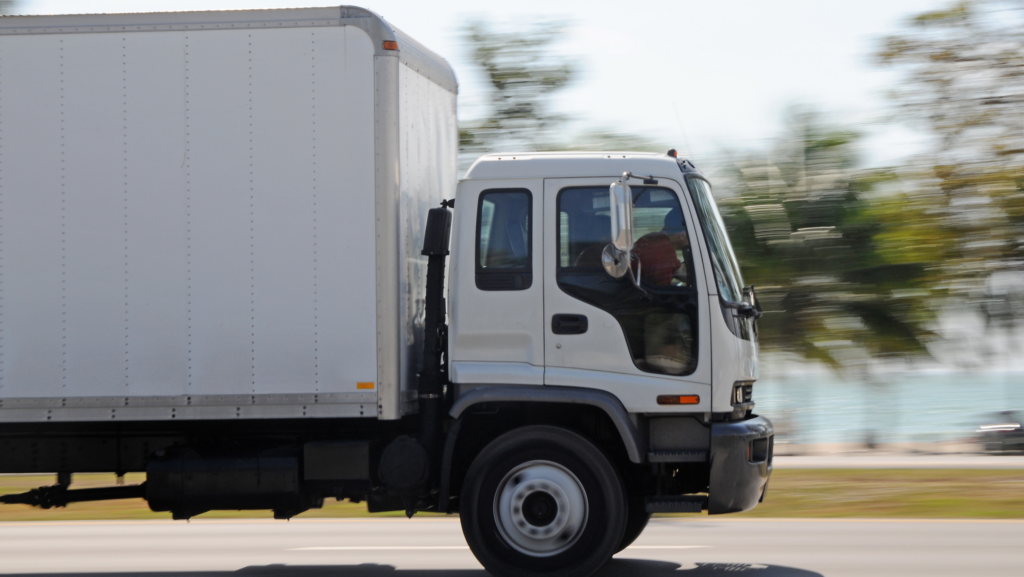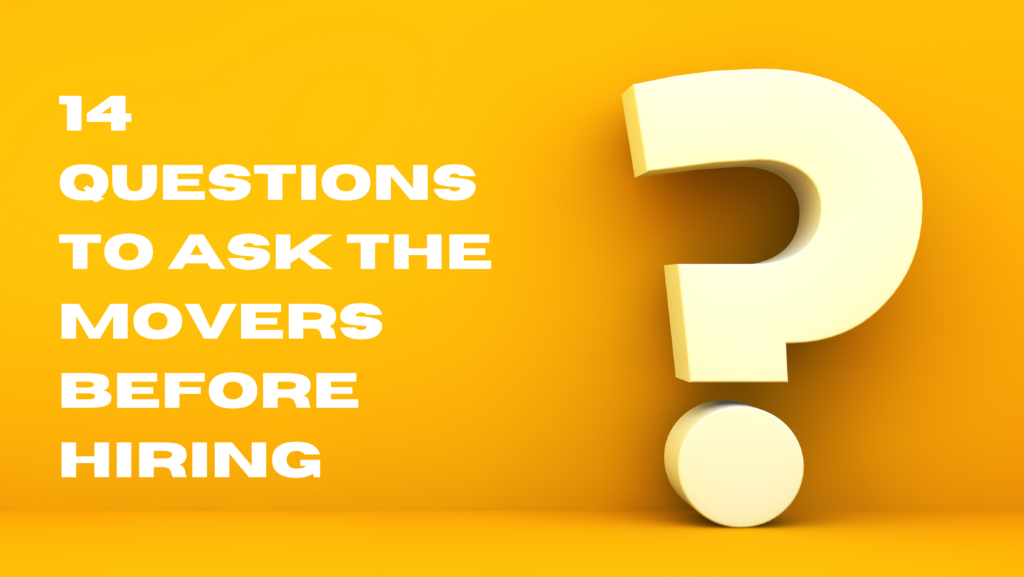Table of Contents
Hiring a moving company can be a big decision, and asking the right questions can help ensure a smooth and stress-free moving process. Here are 14 questions you may want to consider asking before hiring a moving company:
1) Are you licensed and insured?
It is crucial to ask if they are licensed and insured for several reasons. A licensed moving company ensures compliance with local regulations, indicating legitimacy and adherence to industry standards. Licensing often involves background checks and quality assessments, providing assurance of professionalism. Insurance coverage is essential for protecting your belongings during the move, offering financial security in case of accidents or damages. Working with a licensed and insured mover reduces risks, ensures accountability, and provides peace of mind throughout the entire process.
2) What services do you offer?
Inquiring about the services offered by a moving company before hiring them is essential for ensuring your specific needs are met. Different movers provide varying levels of assistance, including packing, loading, unloading, and transportation. Knowing their range of services helps you customize your moving plan, ensuring a smooth and tailored experience. Whether you require comprehensive assistance or only specific services, understanding what the moving company offers allows you to make an informed decision that aligns with your relocation requirements.

3) Can you provide references?
Asking to provide references can help you gain insight into their reliability and professionalism. References from previous clients offer firsthand accounts of their experiences, providing valuable information about the company’s performance, efficiency, and customer satisfaction. By contacting references, you gauge the mover’s reputation, reliability, and their ability to handle the specific challenges of your move. In our previous blog, “All You Should Know About Moving Companies”, we share other ways to research and select a moving company. This step helps you make an informed decision, ensuring that you entrust your belongings to a moving company with a great track record.
4) How long has your company been in business?
Asking a company how long they have been in business provides more insight to their experience and reliability. A longer-established company often signifies a proven track record of successfully handling various moves over the years. Experience in the industry indicates a deeper understanding of logistics, potential challenges, and effective problem-solving skills. By choosing a moving company with a substantial history, you increase the likelihood of a smoother and more efficient relocation process, as they are likely to have encountered and overcome a variety of moving-related scenarios throughout their time.
5) What is your pricing structure?
Inquiring about the pricing structure of a moving company before hiring them is crucial to avoid any surprises and ensure transparency in financial matters. Understanding the pricing details, including the overall cost, additional fees, and any potential charges, allows you to budget effectively for your move. It also helps you compare quotes from different movers and choose the one that best aligns with your financial plans. It also prevents unexpected costs and ensuring a more straightforward, manageable process.
6) What payment methods do you accept?
Make sure to ask if the company accepts your preferred form of payment. It helps you plan your financial transactions accordingly, whether through credit cards, checks, or other payment forms. This also helps clarify any additional fees and prevent any misunderstandings or delays during the moves. This simple yet crucial information ensures that both parties are on the same page regarding the payment process, making it a seamless move.

7) What happens if items are damaged during the move?
Inquiring about the procedure for handling damaged items during a move is crucial before hiring a moving company to ensure accountability. Understanding the company’s policy on damaged belongings allows you to be informed about the steps to take in case of any unfortunate incidents. It helps establish the level of responsibility the moving company assumes for damages and provides insight into the claims process. This will help you make a wise decision knowing that there is a defined protocol in place to rectify any potential issues and protect your belongings throughout the relocation process.
8) Is there a cancellation policy?
Understanding the cancellation policy provides clarity on whether there are any fees associated with canceling or rescheduling the move. It allows you to plan accordingly and make informed decisions, knowing the potential consequences if circumstances require adjustments to the moving schedule. A clear cancellation policy contributes to a transparent and fair working relationship between you and the moving company, ensuring that both parties are aware of the terms and conditions in case changes become necessary.
9) Do you subcontract your moves?
Knowing if the company uses subcontractors allows you to research the reputation and reliability of all parties involved in your move. Direct communication and coordination with the primary moving company and its subcontractors become more manageable when you are aware of their involvement. It also helps you assess the consistency of service quality throughout the entire process.
10) What equipment and vehicles do you use?
This question ensures the efficiency, safety, and security of your move! It is important to know the type and condition of the equipment, such as packing materials, tools, and transportation vehicles, provides insights into the company’s commitment to a well-organized and secure moving process. Well-maintained vehicles and appropriate equipment contribute to the smooth handling of your belongings, minimizing the risk of damages during transit.

11) Are there any restrictions on the items you won't move?
Asking about any restrictions is crucial before hiring, to make sure your belongings comply with their policies and to plan accordingly. Understanding any limitations helps you identify items that may require special handling or alternative transportation arrangements. It also allows you to make informed decisions about specific belongings, such as hazardous materials or prohibited items, that the moving company may not be able to transport. This can help you avoid any last-minute surprises, ensure the safety of your possessions, and make alternative arrangements if needed.
12) How do you handle delays or changes to the schedule?
Inquiring about how a moving company handles delays or changes to the schedule is crucial before hiring them to anticipate potential disruptions and ensure a flexible and adaptable moving process. Understanding their procedures for unexpected delays provides clarity on communication protocols and alternative plans. It allows you to assess the company’s commitment to customer satisfaction and their ability to navigate unforeseen circumstances. By having this information, you can make informed decisions about your timeline, plan for contingencies, and choose a moving company that demonstrates a proactive approach in handling changes.
13) What is the claims process for damaged items?
This is important so you are clear of how they handle potential damages and the steps involved in seeking compensation. Understanding the claims process allows you to be prepared in case of your belongings are damaged during the move. It provides insights into the documentation and communication required for filing a claim, facilitating a smoother resolution. This knowledge empowers you to make an informed decision and choose a mover that prioritizes the protection and compensation of your possessions.
14) Can you provide a written contract?
Requesting a written contract from a moving company before hiring them is essential to formalize the terms and conditions of the agreement, providing legal protection and clarity for both parties. A written contract outlines the services, pricing details, timelines, and any other important information, ensuring that there are no misunderstandings. A contract serves as a binding agreement that you can refer to in case of disputes or discrepancies, offering a clear reference point for the expectations set during the moving process. By securing a contract, you establish a foundation of trust and accountability, and a professional working relationship with the moving company.

By asking some of these 14 essential questions outlined in this blog, you empower yourself to make an informed decision that aligns with your needs and ensures a stress-free moving experience. From understanding the pricing structure to verifying insurance coverage and evaluating customer reviews, these questions cover various aspects that contribute to a successful move. Remember, investing time in thorough research and asking the right questions now can save you from potential hassles and surprises later. His Workmanship wishes you a seamless transition to your next chapter!



